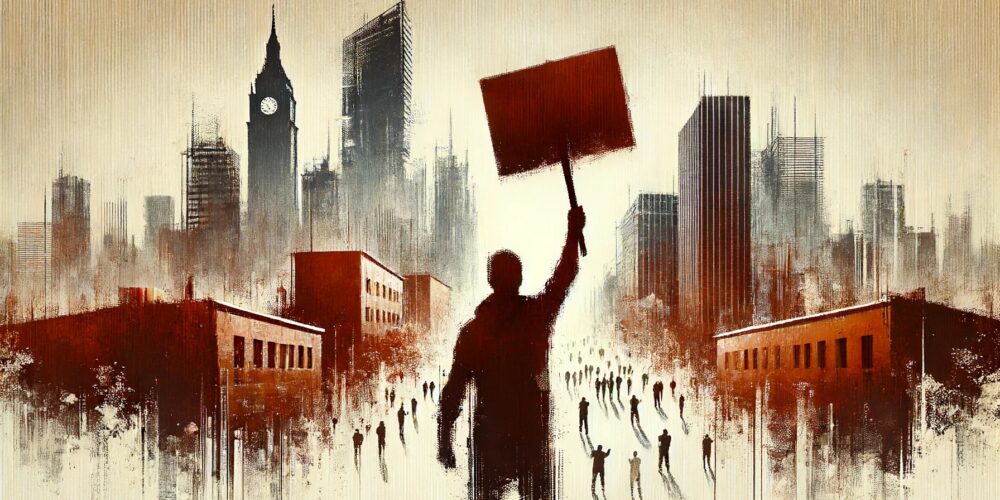Why we should all be activists

Zarina Patel is no more; Kenya’s activist of renown passed away recently. She hit our headlines when she led the protests against the grabbing of Nairobi’s historic Jeevanjee Gardens in 1991. Since then she found a whole range of worthy causes to be involved in. If action was needed against a social injustice or human-rights outrage, Zarina was usually there with her equally indefatigable partner, Zahid Rajan—organising, writing, leading.
I wondered on this page way back in 2006: why do so many of us have disdain and even irritation with the vociferous activists in our midst? It is perhaps natural that the politicians who regularly find themselves on the wrong side of history can’t stand the sight of well-known activists, but why do big corporations also seem to catch feelings? I wrote back then that in boardrooms, activists are persona non grata at best, dangerous hotheads at worst.
Let me echo the refrain I put here all those years ago: if activists didn’t exist, we would still be stuck in the stone age. It is because a small but very determined group of people have been ready to protest that some of the manifold outrages of the human race have been corrected and removed from our societies over time. We are very lucky that certain people seem to be born to protest, for they have the guts to do what the rest of us shy away from.
This courage, this willingness to stand against the tides of oppression, injustice, and inequality, is why we live today with legal protections and rights. Without that, you and your family might be subject to untold indignities and oppressions. That advancement did not come naturally—it had to be fought for.
In Kenya, were it not for the fortitude and resolve of various freedom fighters and protesters, where do you think we might be today? Would we enjoy sovereign rule? Would Uhuru Park and Karura Forest still exist as public places, or would they be cordoned off for the homes and hotels of the rich?
Zarina came from a long tradition of like-minded protesters in Kenya, including Fred Kubai, Makhan Singh, Pranlal Sheth, Bildad Kaggia, and Wangari Maathai. If you are too young to know who those people were, please correct that oversight quickly. You have a country because they had the nerve to stand against oppression.
Internationally, would civil rights have taken root in the US without the fight and fervour of Harriet Tubman or Martin Luther King? Would the world be the same today had Mahatma Gandhi not proved the power of non-violent protest? Would South Africa have held a democratic election recently had Nelson Mandela, Oliver Tambo and Desmond Tutu never stood up in protest back in the day?
All these activists may be separated by borders and terrains and cultures, but they stand united in history by their extraordinary courage and persistence. They tell us that a better world is earned from below, not granted from above. These individuals were not just fighting for themselves; they were also fighting for you and me.
The business world should also pay its respects. Corporate titans are fond of viewing themselves as demigods who know what’s best for everyone, but that is a blatant miscasting of human history. Most corporations once regarded employees as subhuman and the environment as a dustbin. They gave us child labour, thoughtless pollution, the enabling of corruption, the selling of harmful products. What made them see the light? Not their own wisdom, but protests that sent a shiver through their balance sheets.
Working towards a better world should matter to everyone. Is a healthy planet not in everyone’s interest? Is a growing economy powered by widespread affluence not something everyone wants? Should sustainability and responsibility not be the hallmarks of organisations that aspire to last beyond a few measly, greedy years? Is rampant inequality not a danger to everyone?
We should all be protesters and activists, in our own ways. Corporations should adopt strict ethical codes and embrace genuine social responsibility. Those leading public institutions should protect their integrity with every muscle. Ordinary folk should shun leaders who shame and retard them. Customers should look at the brands they buy and drop those embroiled in misdeeds. And we can all use what we have available to us. I personally try to use this page to beat many drums; and I take these provocations to boardroom conversations, so that the wisdom to be better from within might take root.
The legacy of the Zarinas and Wangaris will be manifested when we all learn to carry responsibility for our collective wellbeing. They shouldered much pain and sacrifice, those brave souls, and we must take up the torch, even in the smallest way. Let us not look away from injustice and indignity when it happens around us. Let us make a stand, in whatever way we can. We can all make a difference, even without facing the tear gas. At a minimum, we can set personal standards and uphold them in our ordinary lives and interactions. We should all protest wrongdoing and stand for something better, even within the confines of our own few feet of influence.
(Sunday Nation, 16 June 2024)

Buy Sunny Bindra's new book
The X in CX
here »
Popular Posts
- Where are you rushing to—your funeral?June 29, 2025
- How to spot a real thinkerJune 15, 2025
- The pause that saves usJune 8, 2025
- Built the app, forgot the flowJune 22, 2025
- The map will appear—once you start walking.July 6, 2025















